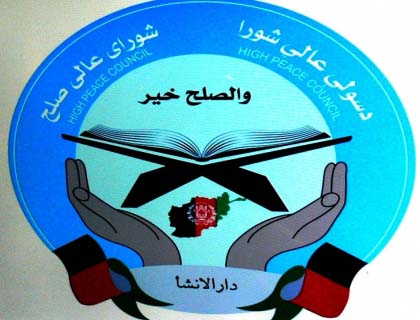A group of Britain Parliament members released a report, saying that peace deal should be made before the withdrawal of foreign security forces. The report says that in lack of peace deal, civil and communal war once again would be sparked. No doubt, a peace talk is essential and civilians and officials alike understand the importance of such deal. What has made the reconciliation worrisome is the cost the Afghans should pay for it.
Afghans are indiscriminately supporting the strategies and policies which can end the present widespread instability and security crisis; because they are tired of past decades of violence and bloodsheds. But, Discrepancy and divergence have grown about the context as well as methods of employment of these strategies.
Afghans are anxious of being indulged in complete disadvantageous negotiation with militants, which possibly endangers their achievements made during nine years of twittering democracy. The qualms and worries are fuelled largely by lack of “a concrete, transparent framework” based on which government officials are bound to define their position. Till now, Taliban militants have never come short of their demands---except hidden meetings somewhere with broker of, perhaps, Pakistan and Saudi Arabia.
On the other hand, President Karzia and his henchmen made up their minds to follow the peace process with, not only lower layers, but with influential leaders of militants. So, if Taliban are persistent on their demands and committed to the principle of radical interpretation of Islam; meetings of high-ranking Afghan officials actually does not add up much, except assuming that Kabul government under the presidency of Hamid Karzia is decisive to pay the price, enough to lure militants to lay their arms and join Kabul government. However, there is nothing out of those secret meetings to be assessed, but involved officials have been confidently ensuring civilians that there would be rendered nothing as such to imperil the democratic achievements of Afghan people. But, criticisms are growing. Why Afghan officials and tend to let Afghans unaware of those meetings and their outcomes? And what
they are really arguing about? If really there is not something in plan, giving an advantage to Taliban militants, as claimed by officials, then what involved officials are mindful of? These questions, seemingly, have become a nightmare for Afghans--- particularly, for non-Pushton communities.
Moreover, another side of this diplomacy relates to Afghan women. They are directly exposed to storm of this nightmare if it comes true. Similarly, their worries are much more than their fellow men. Civil society, women rights activists as well as individuals have raised serious questions in proportion to popularity of debates about the advantages and disadvantages of “reconciliation and reintegration”.
What makes this process more and more nightmarish for Afghan women is the bleak image they have in the diaries of their memories. They fear negotiation with militants will cost their freedom achieved laboriously during past eleven years by the contribution of international community.
Let me explain the issue. Afghan society is a conservative society, where periodically women have found their position and status along with fellow men, but, in general, they have been the victim of extreme tradition and imprisoned to clutches of culture and ethics. Since Afghan society has alternatively fallen prey to the global and regional rivalries, thus, it has never found its own way to heart of modernization and modernity, where religion and religiosity found a new definition in the new geography, drown by emergence of philosophical alternatives.
However, it has not been only Afghan society, but, generally, in all over the Muslim world, religion kept its previous dominance over social, cultural and political issues, but with the differences. These differences were the formation of organizations, institutions and movements that laid the basis of modern concept of religion in the Islamic world. However, these movements have been always faced serious challenges, inflicted by conservative, traditional poles of the society, who claim religious studies (research) as their profession, but, ostensibly, their thesis and antithesis have yielded a far acceptable synthesis. Since majority of Muslim countries are defining themselves with Islam and Islam is not only part of their culture but their very identity, a religious reform seems must to bring about changes to social, cultural and political set-up.
As Afghan society is also defined with Islam, and, till now, religious concept and religious studies have been under manipulation of Madressah-educated individuals, who call a minor slide from the old and traditional notion of religion as infidelity and westernization, thorough and comprehensive research is due in the sources as well as contexts of religion to occasion a comprehensive social and cultural reforms because religion, in Afghanistan, is the key and dominant parts of culture.
However, here we have a so-called democratic government committed to international conventions and woman rights, but neither Afghan official are really in mood nor traditionalist forces can allow them to employ all those international commitments in detail. I do not think so that countable number of Afghans, even those who have higher education, can persuade those Madrrassah-educated people to accept, for example, the right of girls and let them chose their life-partners without the consent of their parents. They claim that the basis of such argument is quotation (Hadith) from Prophet Mohammad and his successors or verses of Holy Quran, and the others’ is Western philosophy and international laws. Then who is the winner of this discussion in a circumstance of an Afghan-type society?

